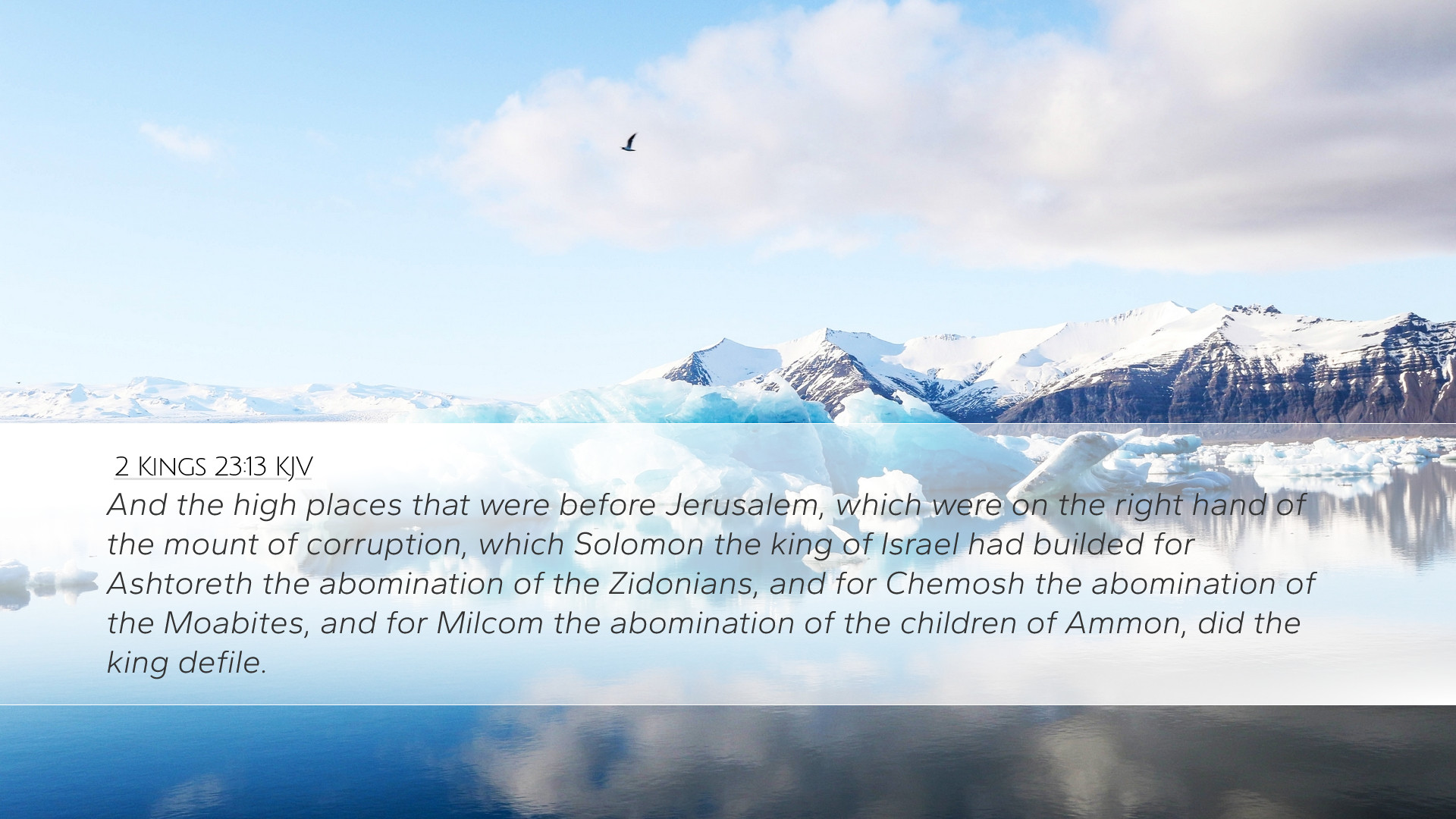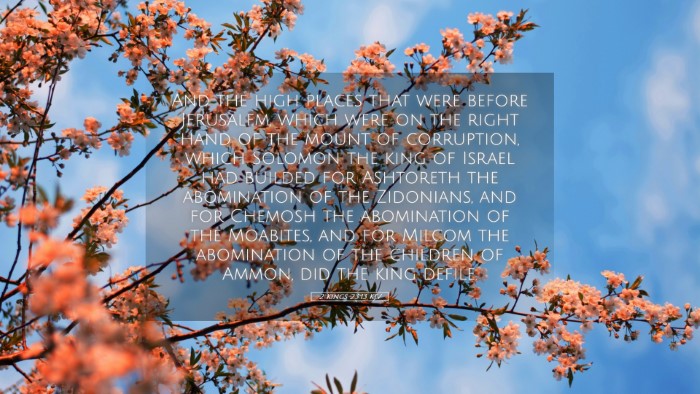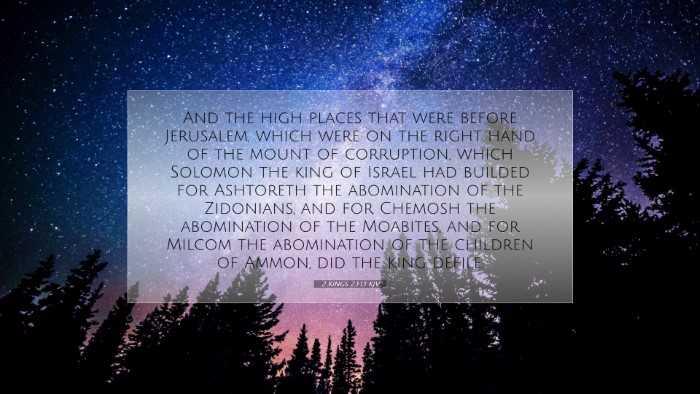Commentary on 2 Kings 23:13
Verse Reference: 2 Kings 23:13 - "And the high places that were before Jerusalem, which were on the right hand of the mount of corruption, which Solomon the king of Israel had builded for Ashtoreth, the abomination of the Zidonians, and for Chemosh, the abomination of the Moabites, and for Milcom, the abomination of the children of Ammon, did the king defile."
Contextual Background
This verse falls during the reign of King Josiah, known for his religious reforms aimed at purging Judah of idolatry and restoring true worship of Yahweh. The high places mentioned were illicit sites of worship that contradicted God’s command to worship only at the central sanctuary in Jerusalem.
Insights from Public Domain Commentaries
Matthew Henry's Commentary
Henry emphasizes the severe nature of idolatry, noting that the high places, especially those associated with Solomon, represented a significant departure from true worship. He points out that Solomon's choices in constructing these altars led to the spiritual downfall of Israel, reflecting the devastating impacts of sin that can ripple through generations.
He further suggests that the act of defiling these altars by King Josiah symbolizes God's judgment on past leaders and the restoration of right worship among the people. By desecrating these high places, Josiah demonstrated a commitment to holiness and the worship of Yahweh alone.
Albert Barnes' Notes
Barnes provides a richer historical context for the high places, describing them as remnants of earlier religious practices that persisted despite the Law of Moses. He notes that King Solomon’s involvement with foreign deities like Ashtoreth, Chemosh, and Milcom led to the establishment of these sites, showcasing the influence of surrounding pagan cultures on Israelite worship.
Barnes remarks on the significance of Josiah's reforms as part of a broader divine strategy to purify the nation. Josiah's actions, including the destruction of these high places, are seen as necessary steps toward reclaiming national identity and allegiance to God.
Adam Clarke's Commentary
Clarke elaborates on the abominations associated with each deity mentioned. He contextualizes each idol: Ashtoreth of the Sidonians represents lust and fertility, Chemosh of the Moabites signifies war and bloodshed, while Milcom was associated with burning children in sacrifice. Thus, these high places represented not only a rejection of Yahweh but also moral corruption.
Clarke also discusses the geographical aspect of these high places, pointing out their connection to the "mount of corruption," which can serve as a metaphor for spiritual decay. He commends Josiah’s zealous cleansing of the land, viewing it as essential for any future restoration and genuine worship among the Israelites.
Theological Implications
This verse and its commentary highlight several theological themes relevant for pastors and theologians today:
- The Nature of Idolatry: The dangers of syncretism and the need for purity in worship are underscored. Idolatry can often creep in through cultural interactions, illustrating how Christians today must be vigilant regarding influences that may draw them away from God.
- Repentance and Reform: Josiah's actions serve as a model for believers advocating for personal and communal repentance. True reform must be backed by genuine attempts to restore right worship, echoing New Testament themes of sanctification.
- The Weight of Legacy: The choices made by leaders, such as Solomon, affect subsequent generations. This compels contemporary leaders to consider the long-term impact of their actions on the faith community.
- God's Sovereignty in Judgment: Josiah’s reforms, though initiated by zeal, ultimately reflect God's sovereign plan to redeem His people through righteous leadership, reminding modern readers of God's grace in restoring and redeeming His church.
Conclusion
2 Kings 23:13 encapsulates a pivotal moment in Israel’s history as King Josiah seeks to cleanse the land of idolatry. The reflections of Matthew Henry, Albert Barnes, and Adam Clarke offer valuable insights into the theological significance of this verse for today's church. Understanding the historical and spiritual dimensions of this narrative is crucial for pastors and students of the Word as they deepen their comprehension of God’s commitment to His people and His intolerance of sin. The challenge remains for contemporary believers to reflect on their own "high places" and to seek true repentance and restoration in their worship of Yahweh.


